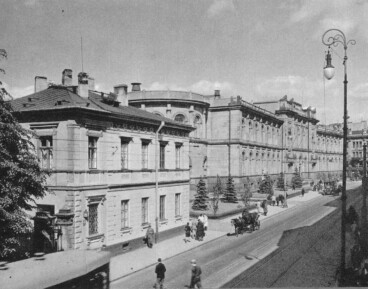Suwerenna waluta, suwerenny naród
Kategoria: Trendy gospodarcze
Perhaps ancient Athens for a brief time came closest to a pure democracy in which every matter is decided by popular vote, but no society of any size and complexity can practice this form of governance for very long. It’s unwieldy and unworkable, endlessly contentious, and disrespectful of certain inalienable rights of individuals who may find themselves in the minority.
People like the sound of “democracy” because it implies that all of us have equal say in our government and that a simple majority is somehow inherently fair in deciding all or virtually all issues. Upon closer examination, it should become very apparent that subjecting every decision of governance to a vote of the people is utterly impossible. Many decisions have to be made quickly; many decisions require knowledge of the issue that few people possess or have the time to become expert on; and many decisions don’t belong in the hands of any government at all.
Suppose someone says, “I just don’t like people with red hair. I think we should confiscate their property. Let’s have a vote on that.” A democratic purist would have to reply, “All in favor say aye.” A person interested in securing and protecting individual rights would have to say, “That’s not a proper function of government, and even if 99 percent of the citizens vote for that, it’s still wrong and illegitimate. There’s nothing about mob rule that makes such a decision legitimate. There is never, anywhere or any time, any justification for any government to take someone’s property just because he has red hair, and no pile of votes can change that. Is that anti-democratic? Yes, it is. Some things, like individual rights, are infinitely more important than any person’s desire to possess what doesn’t belong to him.
A republican form of government modifies pure democracy considerably. It provides a mechanism whereby almost anyone can have some say in some matters of government. We can run for office. We can support candidates and causes of our choosing. We can speak out in public forums. And, indeed, a few matters are actually decided by majority vote. But a sound republic founded on principles that are more important than voting (like individual rights) will put strong limits on all this. In its Bill of Rights, the U.S. Constitution clearly states, “Congress shall make no law . . .” It doesn’t say, “Congress can pass anything it wants so long as 50 percent plus one support it even if none of the voters know a thing about the issue.”
Two wolves and a lamb voting on what to have for lunch is “democratic” but the outcome isn’t exactly what the lamb had in mind.